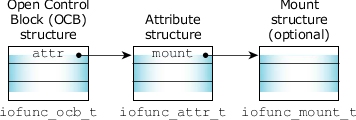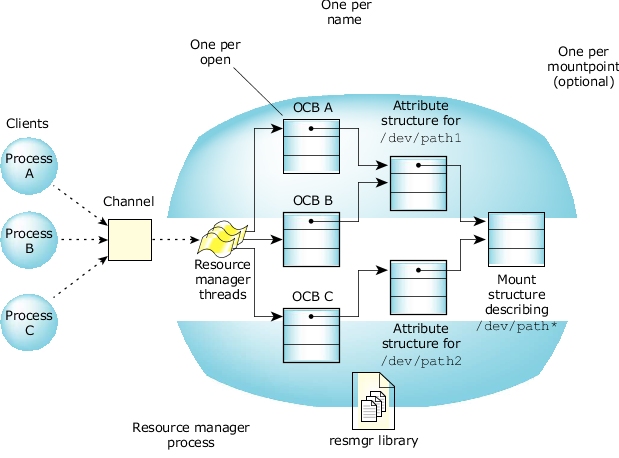The resource manager library defines several key structures that are related to the POSIX-layer support routines:
- iofunc_ocb_t (Open Control Block) structure
- Contains per-open data, such as the current position into a file (the lseek() offset).
- iofunc_attr_t (attribute) structure
- Since a resource manager may be responsible for more than one device (e.g. devc-ser* may be responsible for /dev/ser1, /dev/ser2, /dev/ser3, etc.), the attributes structure holds data on a per-name basis. This structure contains such items as the user and group ID of the owner of the device, the last modification time, etc.
- iofunc_mount_t (mount) structure
- Contains per-mountpoint data items that are global to the entire mount device. Filesystem (block I/O device) managers use this structure; a resource manager for a device typically won't have a mount structure.
This picture may help explain their interrelationships:
 Figure 1. A resource manager is responsible for three data structures.
Figure 1. A resource manager is responsible for three data structures.If three clients open two paths associated with a resource manager, the data structures are linked like this:
 Figure 2. Multiple clients with multiple OCBs, all linked to one mount structure.
Figure 2. Multiple clients with multiple OCBs, all linked to one mount structure.